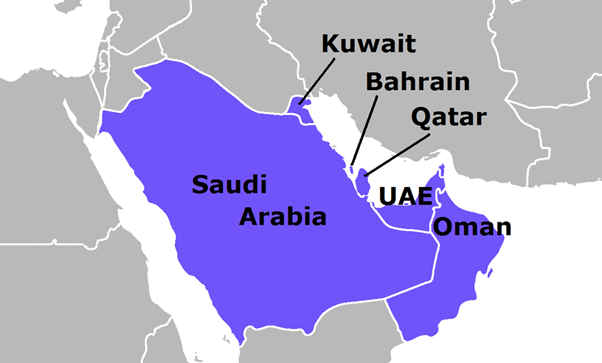UK-GCC free trade agreement negotiations launched
Monday, 27 June 2022
On 22 June 2022, The Rt Hon Anne-Marie Trevelyan, Secretary of State for International Trade of the United Kingdom, and H.E. Dr. Nayef Falah M. Al-Hajraf, Secretary General of the Gulf Cooperation Council officially announced the launch of the UK-GCC FTA negotiations.
We have been following the various trade negotiations that the UK government has had to date and examining the potential impact through the Horizon series.
The GCC is a regional trading bloc made up of Bahrain, Kuwait, Oman, Qatar, Saudi Arabia and The United Arab Emirates. The formal announcement also stated that the first round of negotiations will begin this summer. In this article we will examine the potential opportunities for UK agriculture.

Over £597 million of British food and drink exports headed to GCC countries last year, including lamb, biscuits and chocolate, so for farmers and food producers the prospect of a trade deal with the GCC provides a significant opportunity. The expansion of the middle-class consumer in the region is driving an increased demand for meat and dairy, and for high quality imported foods. The UK is well placed to capitalise on this increased demand with the UK brand associated with quality and heritage in these markets.
The region is very import-dependent and food import regulations and standards are strictly enforced, given strong adherence to the Islamic faith. For our levy payers, there is growth potential for imports of both red meat and dairy products, taking account of the increasing consumer base.
Figures from HMRC show that between 2018 and 2019, there was a 319% increase in the volume of UK lamb exported to the Middle East. The volume of fresh and frozen sheep meat exported to the UAE for instance, increased from 79 tonnes in 2019 to 657 tonnes in 2020. While the volume of UK lamb and mutton exported to the Middle East is relatively low in comparison with Australia and New Zealand, interest in UK lamb is growing across the Middle East. AHDB recently appointed an agent in the region to engage in outreach and other promotional activities in order to highlight UK sheep meat as a high quality and versatile product.
UAE is also a key market for UK dairy products. Food and drinks imports are due to increase by 30%, with dairy products as the third biggest import for the UAE. A key area of opportunity for the dairy sector, and especially for cheese, is the food service and hospitality industry. In Dubai, alone, there are 70,000 hotel rooms, plus airlines, etc, and, as a premium destination with over 16m tourists a year, this is a key market. The UK shipped over 2,000 tonnes of cheese to the UAE in 2016, according to data from UK HMRC. There could be an opportunity for high-value dairy cheeses. MFN tariffs are currently 5% for powders, cheese, and butters.
So, with a prospective trade deal with a valuable net importer of food, a growing, affluent and discerning consumer base with an established demand for UK produce what could possibly go wrong? Inevitably, the negotiations will not be as straightforward as one might suppose given simple demand and supply factors. The EU has seen negotiations, which started in 1988, repeatedly stall over political issues, most notably the human rights issues in the GCC region. How the UK government manages to navigate this hurdle will be closely observed not just by AHDB, but also by the EU and the wider global community when formal negotiations commence in the new year.
Topics:
Sectors:
Tags:

